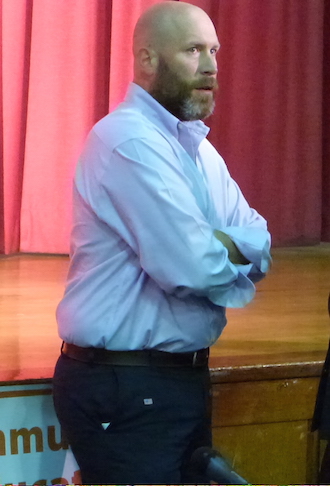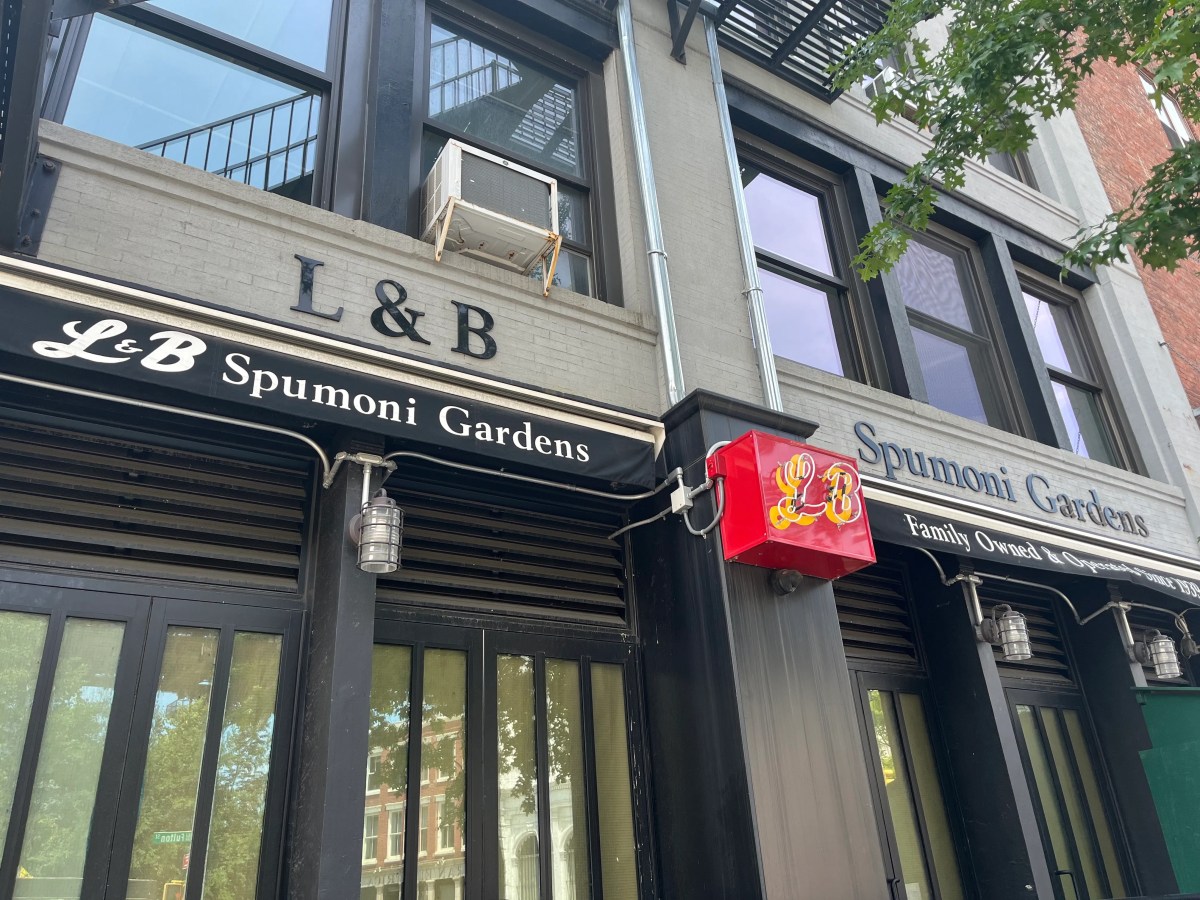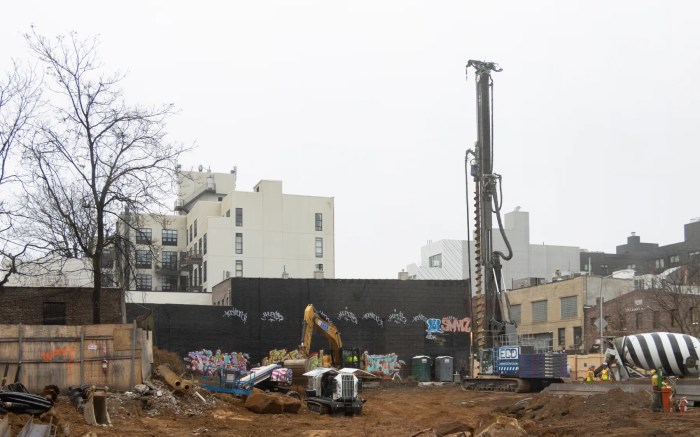
BY JOSH ROGERS | The scene next spring on the Upper West Side is coming into pretty clear focus: Many dozens of families will be upset to be on the P.S. 199 waiting list. Some live within a block or two of the popular West 70th Street school, and they may be surprised to know that their children’s chances of getting a coveted seat were not increased as they expected.
The future is never certain, but it’s hard to imagine a different scenario, particularly given how school zoning disputes have played out in the past. The November 18 reporting by the New York Times that the Department of Education is now backing off any plans to recommend rezoning only makes the picture more clear.
The District 3 Community Education Council has been wrestling with new zoning ideas for two months. There have been lots of long meetings to discuss proposals, but they have largely been attended by parents who thought they were going to be cut out of the P.S. 199 zone. There’s been little sign of participation by the families who will end up being the most aggrieved.
That may be because they live closest to P.S. 199 and the original proposal under consideration had them safely within the zoning lines. They would have stayed within the zone regardless of which option was chosen, but since the CEC is against the idea of shrinking the zone significantly, kindergarten applications from some of these families close to the school will be rejected.
Since the CEC made it clear two weeks ago that it was not going to reduce the P.S 199 zone by much, Joe Fiordaliso, the group’s president, said he has not heard a lot from families whose chances would be reduced, but he knows they’re out there.
Children are worrying, too, he added in a phone interview. He pictures them walking by the school and saying, “‘Daddy, am I going to school here, next year?’ What do you say to that? There’s a lot of anxiety and stress for everyone.”
He and a few other members of the CEC back reducing the P.S. 199 zone slightly and shifting it to P.S. 452 to the north, but he acknowledges even if that is approved, it would probably only reduce the expected waiting list from 100 to about 85.
Fiordaliso doubts there are many parents close to the school who are unaware that their children’s chances of being admitted are iffy given the “chronic” overcrowding problems and the outreach the CEC has done about the rezoning debate, but only a few comments posted to the council’s website mention concern about the zone not being reduced enough.
“We know we have to be prepared for all manner of lotteries and competitions in our kids’ lives,” one commenter who lives in Lincoln Square wrote. “But admission to their zoned neighborhood kindergarten class should not be one of them. If 199’s neighborhood continues to be a place where kindergarten admission is largely dependent on who you know (i.e., do you already have a sibling at the school?), with all other families subject to lotteries and summers of panicked uncertainty, everybody loses.”
The CEC, an unpaid group of parents elected by PTA leaders in the district schools, has agreed, as is typically done, to “grandfather” siblings of existing P.S. 199 students so that they will have priority admission regardless of whether they stay in the zone.
The group also backs moving P.S. 191 on West 61st Street into a new school building being constructed nearby at Riverside Center. Fiordaliso said the promise of a new school building in two years could convince more parents to enroll at the less popular P.S. 191 this coming September.
P.S. 342, currently slated to open in 2018 in that new building, would instead open up in the 191’s current space, under the CEC’s preferred plan.
The CEC also plans, down the road, to consider combining191 with 342, as 191 leaders have requested, but the council is not currently considering grouping the schools with P.S. 199 or creating a “superzone” with all three schools as others have proposed.
P.S. 191, which unlike 199, is mostly non-white, has been labeled “persistently dangerous” by the state, although the overwhelming consensus is the designation does not reflect reality, and by all accounts, the school is improving under a new principal.
Under the first zoning plan the city Department of Education suggested to the CEC, the P.S. 191 zone would have expanded along with P.S. 452 in the hopes of eliminating the waiting list at 199. The CEC opposes expanding the 191 zone because the “dangerous” designation gives parents added rights to demand placement at another school, so a bigger zone would be an ineffective strategy for addressing the overcrowding at 199.
The CEC also wants to eliminate the “right of return” at P.S. 199, which — quite unusually — has had waiting lists even for the first grade. Under this right, zoned families denied a kindergarten seat can be admitted in future years if there is space, but this has contributed to the overcrowding and made it difficult to accommodate families who move into the neighborhood with older children.
The Department of Ed had been expected to present a proposal along the lines of the CEC suggestions on November 19 and the CEC had scheduled an up or down vote December 2. Whether the CEC will take any action at the November 19 meeting, in the wake of the DOE’s decision to make no recommendation, is now unclear.
Fiordaliso said any plan will be far from perfect, arguing that said if the CEC had more input as the DOE developed its initial zoning plans, there would be better solutions. He and local school advocates across the city have long criticized the department for underestimating the need for new schools.
“We have very little power and authority which makes it exceedingly difficult to affect real and meaningful change,” he said. He added, however, that Schools Chancellor Carmen Fariña, appointed early last year by Mayor Bill de Blasio, has promised him better communication and transparency and so far he has no reason to doubt her.
Similarly, Shino Tanikawa, the CEC president in District 2, which covers the Upper East Side and most of Downtown Manhattan, said relations with the DOE have improved under Fariña, particularly since the chancellor has returned more power to local superintendents.
Tanikawa, who has presided over several contentious zoning fights in Lower Manhattan, said her sense is the CEC there will be able to provide more input earlier in the process the next time there’s a need to adjust zoning.
But the decisions are never easy.
“Whatever you do, you’re going to be pleasing half the people and making half the people unhappy,” Tanikawa said.
This time, the unhappy will likely be the waitlisted families near West 70th Street.







































